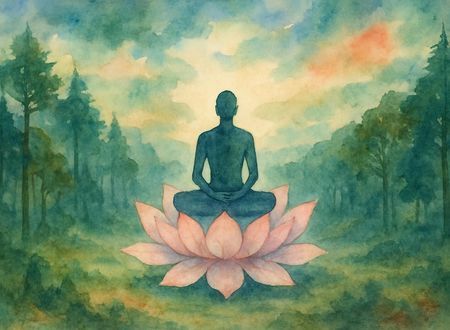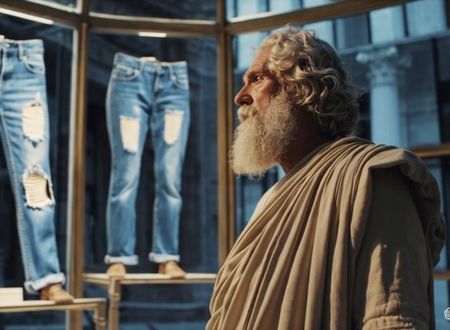Someone wrote in the other day, “One has to be a fool to read ur blogs (sic), and pay the premium. You have mastered how to con…”
This was the entire message and it was an email sent to the os.me support team but once or twice a year, I login randomly to check if various teams are responsive and courteous in writing back to our users. And so it was, by sheer chance, I came across this email.
It was a tad disturbing to read that email because I thought, how could someone, in mere two lines, beset their discourse with such grammatical oversights, punctuational lapses, and deficiencies in expression? The last malformed sentence simply could not be terminated with an ellipsis but he did exactly that. For a moment, I felt bad for another reason too: this person was calling you, my dear reader, a fool. I’ve always held a much higher opinion of you and how come he allowed this doubt to creep into my otherwise convinced mind. But then again, I also read my own posts, so you and I are in the same boat.
Humor aside, it got me thinking that why don’t we feel the same way about criticism as we do about praise. It feels good when someone praises us, right? Is it because we are narcissistic or egotistic megalomaniacs that we can’t hear enough of our glories? Not quite. In fact, it has hardly anything to do with the evolution of human thought. At least, not in the beginning. For, within moments of being hit with criticism, we are governed by our instincts. Our wisdom helps us in processing that criticism calmly, it aids us in being mindful about our response and so on. But, it doesn’t dictate our visceral reaction to any new information.
The truth is that we are almost hardwired to feel elated upon hearing our praise. Neuroscientists have found that the same region in our brain lights up upon getting a compliment as it does when we receive a monetary reward.
In other words, neuroscientifically speaking, paise = praise = paise.
That explains why numerous times we put social rewards above financial ones, eg, flashy products or headlines that will get you more attention. Or the phenomenon of TikTok where there was not a dime to be made for the longest while nor any meaningful wisdom but the creators got enormous social validation and compliments. I am not suggesting it’s right or wrong. You are free to choose. Whether it’s wealth, status, fame, liberation or anything else you wish to pursue, you be your own guru. The issue with social validation, however, is the fickle nature of praise, or as I like to call it — the paradox of praise.
The remarkable saint-philosopher Sri Aurobindo was once invited to an elite gathering where the host praised him profusely. Many in the crowd joined in too. Sri Aurobindo, however, didn’t seem pleased at all.
“I am rather worried,” he said upon inquiry. “How will I handle the situation when this praise will turn into criticism one day? That’s because I was Aurobindo earlier. I am Aurobindo now. I’ll be the same tomorrow too. But, the crowd won’t be the same. It will be a different set of people who may or may not understand me. So the slightest of praise worries me.” 1
That’s why I call it the paradox. To earn praise, you’ve got to have something that the world cares about. You must be able to give something that the world places a certain value on. Hearing right praise boosts your sense of self-worth but soon your brain wants more. Now, to earn more praise, you have to do more of what the world wants which is unlikely to align with your principles. The more praise is heaped on you, the harder your brain aspires for more. It’s never enough. And the paradox is that to earn praise you may find yourself doing things that are not praiseworthy at all. You will be the same person but the crowd will change. And as they change, you will need to change to keep up with them. Glories will turn into gaalis (cussing). It’s a vicious cycle.
Hence, it pays to never let any praise get to your head. Besides, no one praises us for who we truly are but for the idealized image they have of us in their mind. The moment that image changes, their praise will turn into criticism. The good news is that if you learn to manage any kind of loss, you become better at handling criticism too (and vice-versa, of course).
Someone who takes a small monetary loss to heart will be equally devastated at the tiniest of criticism. No wonder, Krishna told Arjuna that a true yogi is someone who has conquered his mind, someone who has realized the ephemeral nature of this world, and the ever transient and elusive ways of all human emotions. Such a yogi remains unaffected by the changing colors of this life.
जितात्मन: प्रशान्तस्य परमात्मा समाहित: ।
शीतोष्णसुखदु:खेषु तथा मानापमानयो: ॥
jitātmanaḥ praśāntasya paramātmā samāhitaḥ,
śītoṣṇa-sukha-duḥkheṣu tathā mānāpamānayoḥ. (BG 6.7)
The one who has conquered the mind, his consciousness is already merged in the Supersoul, for he has attained tranquillity. To such an individual happiness and distress, heat and cold, honor and dishonor are all the same. 2
Conquering the mind does not mean that you will start loving criticism, by the way. It simply means that you will not crave social validation or praise and I cannot even begin to tell you how liberating that is. Truth be told, true contentment is impossible without being okay with where you are emotionally, intellectually, and financially. It’s when you are in sync, in harmony with all three, do you truly feel that you have conquered your mind.
While an expression of gratitude by someone can be, and often is, genuine, when they praise you unctuously, however, you may want to step back for a moment and reflect on the price you will pay to live up to that praise. Any perfume is best sprayed in little quantities. The more you spray, the more desensitized you become towards its fragrance. It then loses its charm, its purpose. Same is the paradox of praise, don’t get used to it. Reflecting on the impermanent nature of everything around you goes a long way in building the mindfulness that nothing is worth clinging to.
Somewhere think of praise as charity. That is, best to give way more than you take. When someone does even a little good, compliment them, praise them to your heart’s content. And when you are at the receiving end of praise, take very little. Don’t just take it with a pinch of salt, take it no more than a pinch of salt. This will lead to tremendous inner freedom.
Now you choose, what’s more important to you: admiration or emancipation?
Peace.
Swami
(Hum aapke hain con, err, kaun, I meant.)
P.S. See you at the upcoming ashram events starting 24-Feb, all of which will be transmitted live on os.me/live
Notes
A GOOD STORY
There were four members in a household. Everybody, Somebody, Anybody and Nobody. A bill was overdue. Everybody thought Somebody would do it. Anybody could have done it but Nobody did it.
Don't leave empty-handed, consider contributing.It's a good thing to do today.









Comments & Discussion
244 COMMENTS
Please login to read members' comments and participate in the discussion.